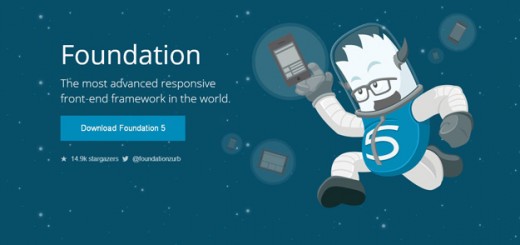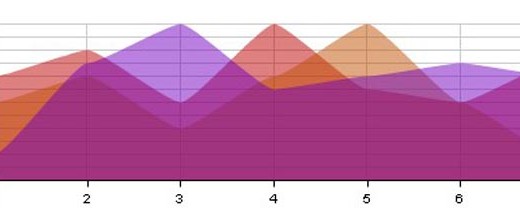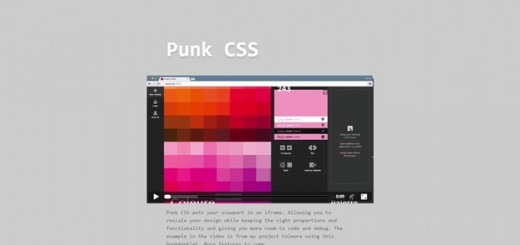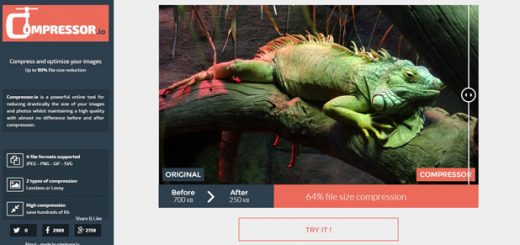New frameworks are emerging as rapidly as the web infrastructure and its demands are expanding. Along with the newest requirements which designers are faced with regarding responsive web design, the structure of Frameworks consists as one of these as being one of the most pertinent when it comes to building and creating websites. Frameworks can be considered or defined as a package which is comprised of a structured set of files and folders of standardized code (HTML, CSS, JS documents etc.) and is utilized within supporting the development of websites, as being the basis to begin creating or building a site.
A framework can be considered or defined as a package which is comprised of a structured set of files and folders of standardized code (HTML, CSS, JS documents etc.) and is utilized within supporting the development of websites, as being the basis to begin creating or building a site.
In this article we have gathered up a list of 10 New Frameworks for Web Developers, some are more complex than others and offer more in terms of configuration options, widgets and interface options. However, they will allow you to create better things concerning your site. We hope you will discover which one suits your web needs best. Enjoy !!
1. Ease.js
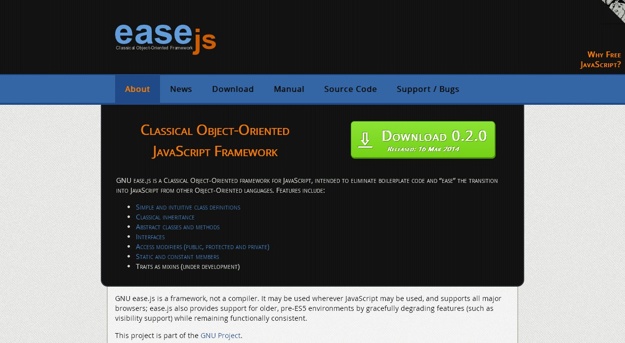
GNU ease.js is a Classical Object-Oriented framework for JavaScript, intended to eliminate boilerplate code and “ease” the transition into JavaScript from other Object-Oriented languages. GNU ease.js is a framework, not a compiler. It may be used wherever JavaScript may be used, and supports all major browsers; ease.js also provides support for older, pre-ES5 environments by gracefully degrading features (such as visibility support) while remaining functionally consistent.
2. Gillie
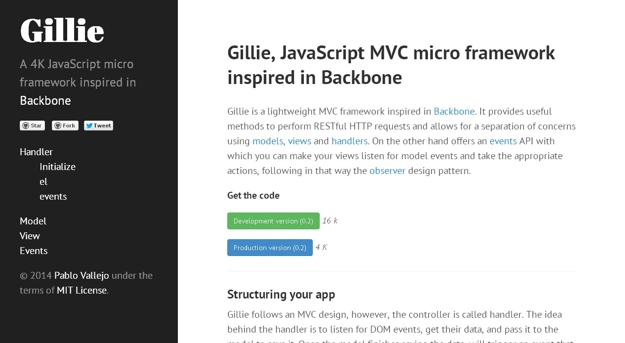
Gillie is a JavaScript micro-framework that lets you easily structure your app using models, views and handlers. Gillie takes things from Backbone, jQuery and Underscore, it is very easy to set up and it’s only dependency is jQuery. Gillie is a lightweight MVC framework 4k inspired in Backbone. It provides useful methods to perform RESTful HTTP requests and allows for a separation of concerns using models, views and handlers.
3. Framework 7
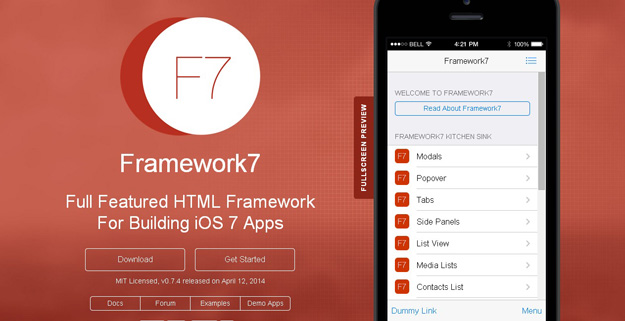
Framework7 is a fully featured HTML framework just for building hybrid (Phonegap) and web-based apps with a native iOS7 feel. It’s lightweight and flexible and uses Ajax for navigation between pages you will need a server. So to make it work you should put dist folder (or Kitchen Sink) on a server. Or, as an option, you may use Grunt’s server.
4. Crumpet
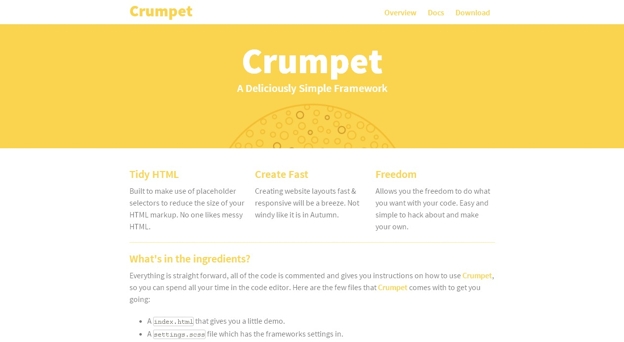
Crumpet is a deliciously simple SASS/SCSS responsive framework that keeps your HTML clean & stays out of your way. Built to make use of placeholder selectors to reduce the size of your HTML markup. No one likes messy HTML.
Creating website layouts fast & responsive will be a breeze. Not windy like it is in Autumn. Allows you the freedom to do what you want with your code. Easy and simple to hack about and make your own. Everything is straight forward, all of the code is commented and gives you instructions on how to use Crumpet, so you can spend all your time in the code editor.
5. Mithril
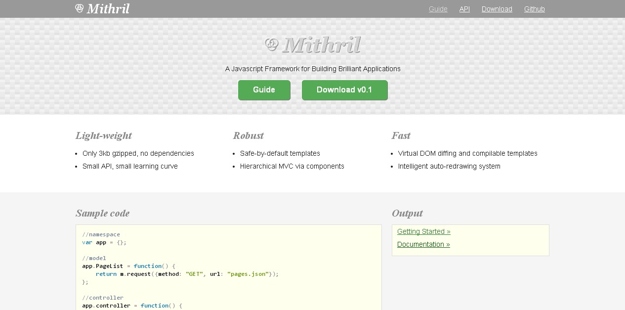
Mithril is a client-side Javascript MVC framework, i.e. it’s a tool to make application code divided into a data layer (called “Model”), a UI layer (called View), and a glue layer (called Controller). Mithril is around 3kb gzipped thanks to its small, focused, API. It provides a templating engine with a virtual DOM diff implementation for performant rendering, utilities for high-level modelling via functional composition, as well as support for routing and componentization.
6. ApplePie
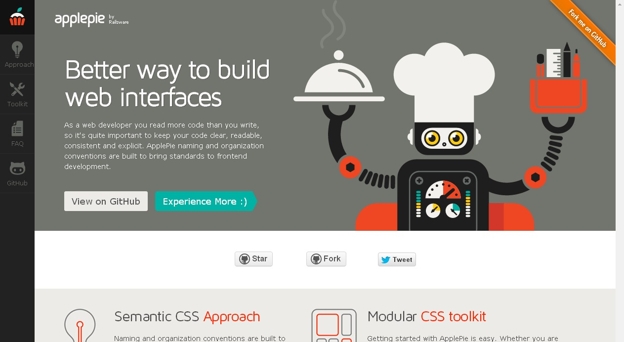
ApplePie Toolkit is modular and responsive CSS framework. Getting started with ApplePie is easy. Whether you are building a simple site with a ‘default’ UI, or you are a master of SASS, building a new app – this toolkit will help you get up and running! Simplest way to get started – straight CSS Toolkit version that includes everything you need to do rapid prototyping. Just grab a CSS file (applepie.css or applepie.min.css), include it to a web page and start doing markup without additional efforts on styling elements.
7. Druandal
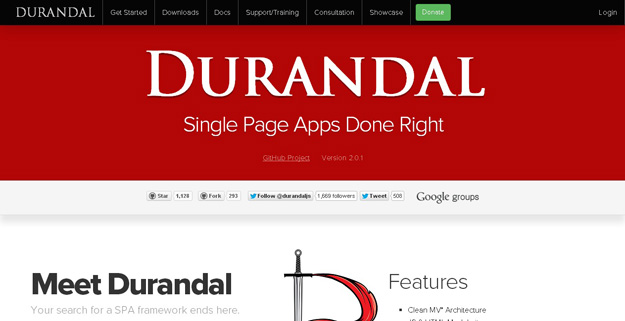
Durandal is a cross-device, cross-platform client framework written in JavaScript and designed to make Single Page Applications (SPAs) easy to create and maintain. They have used it to build apps for PC, Mac, Linux, iOS and Android. Durandal is built on libs you know and love like jQuery, Knockout and RequireJS. There’s little to learn and building apps feels comfortable and familiar.
8. Molecule
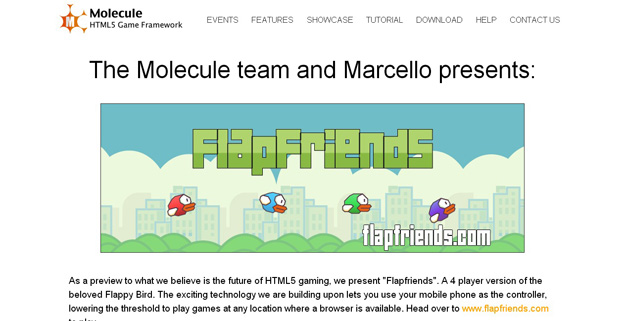
Molecule framework has been built for enthusiast game developers with more than five years of experience on mobile gaming and more than ten on general game development.
Due the better compatibility of mobile browsers with actual html5 specifications and the natural evolution of the hardware inside them, html5 mobile gaming arise as a true possibility nowadays; that it’s given rise to Molecule, which borns from the idea of create a simple yet powerful framework to build html5 cross-platform games on an easy and efficient way.
9. Webplate
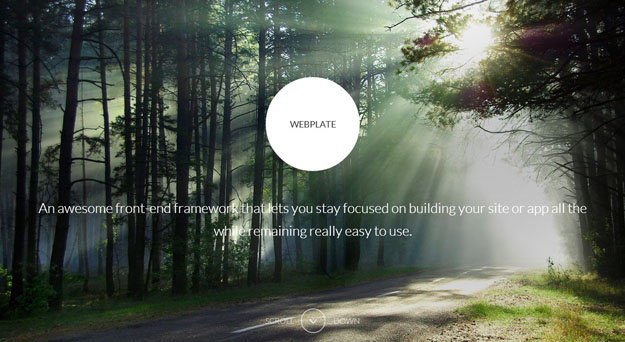
An awesome front-end framework that lets you stay focused on building your site or app all the while remaining really easy to use. Everything from a robust responsive layout engine, to global button elements, customizable forms and support for IcoMoon icon fonts. Webplate includes jQuery, Modernizr and Typeplate by default and has a ton of extra tools and features to access.
10. Jeet
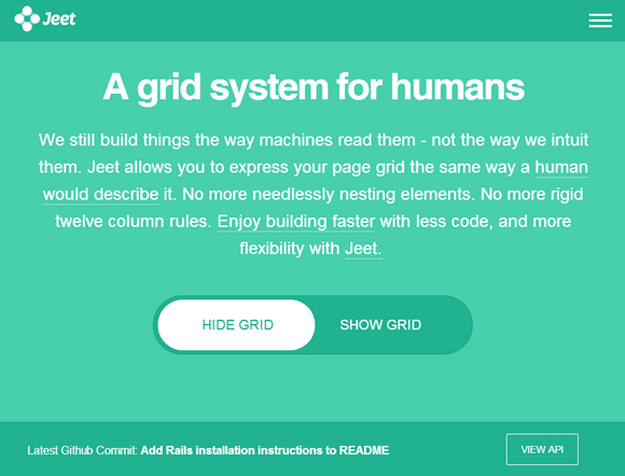
Jeet is the advanced, yet intuitive, grid system on the market today and can consider it like the spiritual successor to Semantic.gs. Jeet is built on CSS preprocessors. As such, you’re no longer limited to classes like .col-6. Instead, you can pass any fraction, decimal, or combination of the two, to create a completely custom grid.

